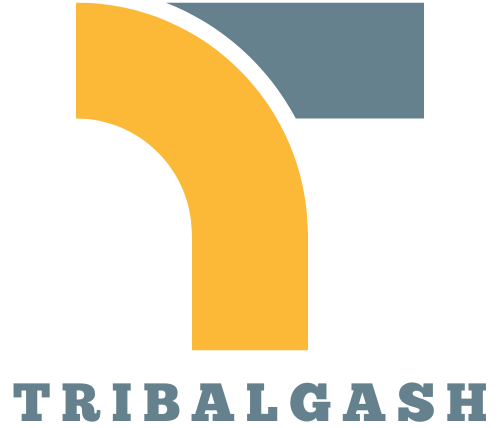In today’s fast-paced world, navigating a career can feel like trying to find your way out of a labyrinth with no map. Enter the career development plan—your trusty GPS for professional growth. It’s not just a fancy term; it’s the secret sauce that helps individuals turn ambitions into achievements.
Table of Contents
ToggleUnderstanding Career Development Plans
A career development plan acts as a strategic roadmap, guiding individuals toward their professional goals. Implementing such a plan enables clear direction in navigating the complexities of career advancement.
Definition and Importance
A career development plan outlines aspirations and identifies the skills and experiences required to succeed. It prioritizes personal and professional growth, fostering motivation and clarity. This blueprint helps individuals assess their current competencies and define future objectives. Tracking progress through measurable steps enhances accountability, thereby improving career satisfaction and stability. Employing a well-thought-out career development plan also encourages continuous learning, adaptability to market changes, and staying competitive in the workforce.
Components of a Career Development Plan
Essential elements make up a comprehensive career development plan. First, setting specific, achievable goals clarifies what one wants to attain. Next, conducting a self-assessment helps identify strengths and weaknesses, informing future steps. Furthermore, outlining actionable steps provides a clear path toward success, such as pursuing education, gaining experience through internships or networking opportunities. Additionally, timelines create a sense of urgency, prompting timely progress. Lastly, regular evaluations ensure one stays on track and adjusts strategies as needed, adapting to evolving career landscapes.
Steps to Create an Effective Career Development Plan
Creating an effective career development plan involves several essential steps that guide individuals toward achieving their professional aspirations. Each step is crucial for ensuring a structured approach to career growth.
Self-Assessment
Self-assessment forms the foundation of a career development plan. Individuals reflect on their strengths, weaknesses, skills, and interests. This evaluation identifies areas for improvement, enabling focused development efforts. Tools like personality assessments or career quizzes can facilitate this process. Gathering feedback from peers or mentors often uncovers blind spots that individuals might overlook. Understanding current capabilities allows for more precise goal setting down the line.
Setting Goals
Setting goals transforms aspirations into actionable steps. Each goal should be specific, measurable, achievable, relevant, and time-bound (SMART). Individuals determine short-term and long-term goals to establish a clear direction. Short-term goals might include completing specific training or certifications, while long-term goals could focus on achieving a promotion or transitioning to a new role. Prioritizing goals based on personal values and career ambitions creates clarity. Writing these goals down enhances commitment and accountability.
Strategic Planning
Strategic planning involves outlining actionable steps to achieve set goals. Identifying necessary resources, such as training programs or networking opportunities, plays a critical role in this process. Individuals map out timelines to create urgency for progress. Regular milestone reviews keep plans on track and allow for necessary adjustments. Adapting strategies according to evolving market demands ensures relevance and readiness for new challenges. Building a support network enhances resources and provides valuable guidance throughout the career journey.
Tools and Resources for Career Development
Various tools and resources exist to support career development. Utilizing these can streamline the growth process and enhance overall effectiveness.
Online Platforms and Courses
Online platforms offer a plethora of courses designed to enhance skills. Websites such as Coursera, Udemy, and LinkedIn Learning provide access to a wide range of topics, from technical skills to soft skills like communication and leadership. Individuals can enroll in courses at their own pace, making it easy to incorporate learning into busy schedules. Certifications gained from these platforms often carry significant weight with employers, helping to advance careers. Engaging in webinars and workshops available online also fosters continuous learning and networking.
Mentorship and Networking Opportunities
Mentorship plays a crucial role in career development. Establishing connections with experienced professionals can provide invaluable insights and guidance. Joining industry-specific organizations and attending professional events creates ample networking opportunities. Engaging with platforms like LinkedIn encourages connections and facilitates conversations with peers and mentors alike. Building these relationships can lead to new job opportunities and enhance one’s knowledge base. Actively seeking out mentorship programs often results in long-lasting partnerships that contribute to ongoing career growth.
Implementing Your Career Development Plan
Implementing a career development plan requires proactive engagement. Individuals must regularly assess their progress toward goals while adapting to challenges along the way.
Tracking Progress
Tracking progress involves consistently reviewing milestones set within the career development plan. Individuals should log achievements and reflect on setbacks, recognizing learning opportunities. Regular check-ins with a mentor or accountability partner can provide valuable insights. Timeliness proves critical; setting specific intervals for these evaluations, such as monthly or quarterly, ensures sustained focus. Evaluating skills gained through educational courses or networking initiatives reveals areas for celebration and improvement. Progress documentation offers motivation and fosters a sense of accomplishment, guiding each individual’s path effectively.
Adjusting Goals Along the Way
Adjusting goals along the way becomes necessary for maintaining alignment with market demands. Reassessing initial objectives enables individuals to adapt to evolving career aspirations. Whenever significant changes in personal circumstances arise, updating goals ensures continued relevance. Staying informed about industry trends also shapes necessary modifications. Engagement with mentors often uncovers insights that inspire shifts in strategic focus. Flexibility within the career development plan empowers individuals to refine their trajectories, positioning them for success in an ever-changing professional landscape.
A career development plan is more than just a document; it’s a dynamic tool that empowers individuals to take charge of their professional journeys. By establishing clear goals and outlining actionable steps, it fosters a sense of direction and purpose.
Regular evaluations and adjustments keep the plan relevant in a constantly changing job market. Embracing resources like online courses and mentorship can further enhance growth opportunities.
Ultimately, a well-crafted career development plan not only boosts confidence but also paves the way for lasting career satisfaction and success.









